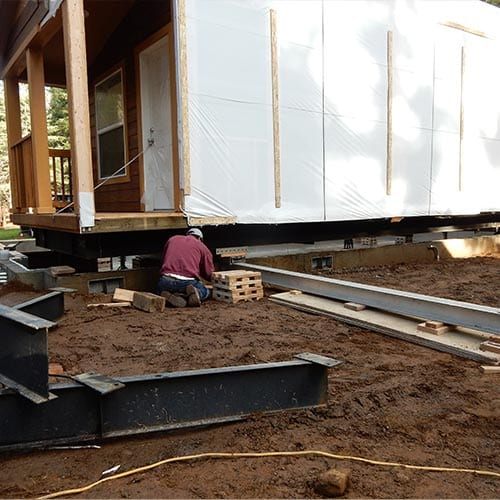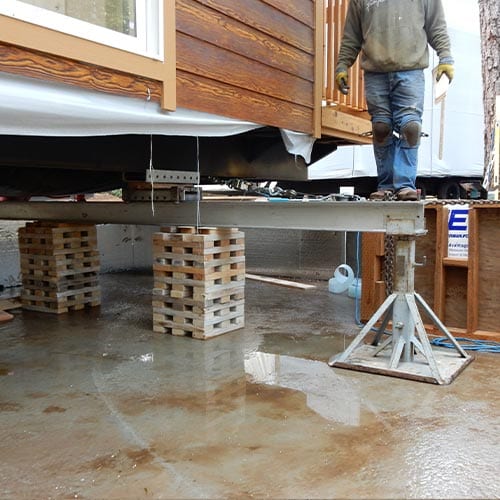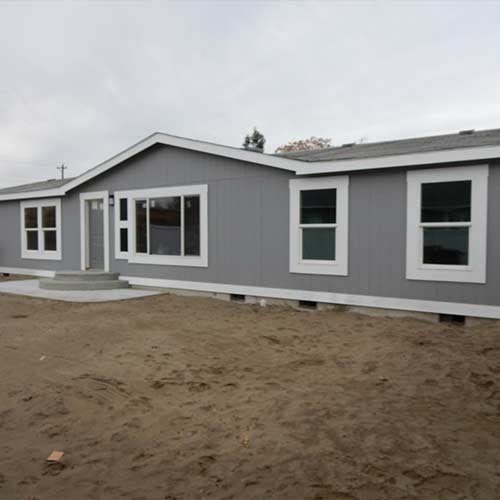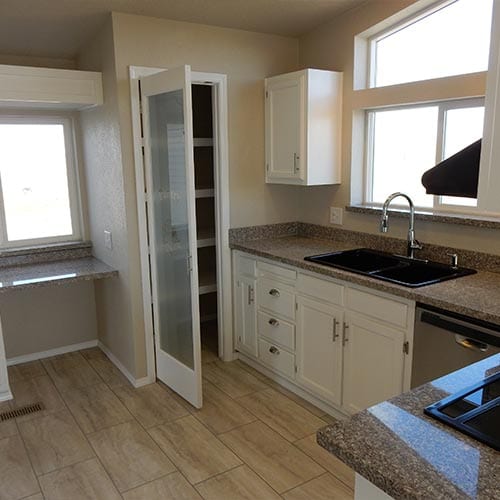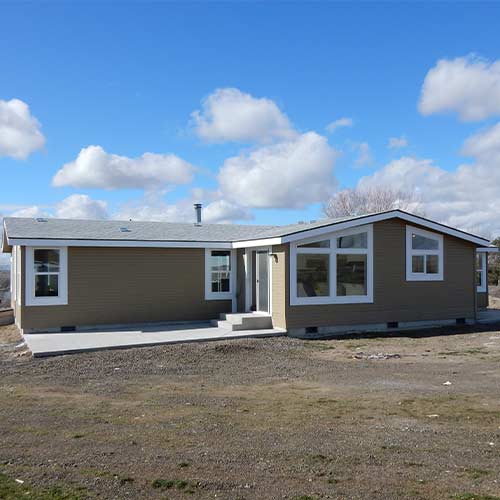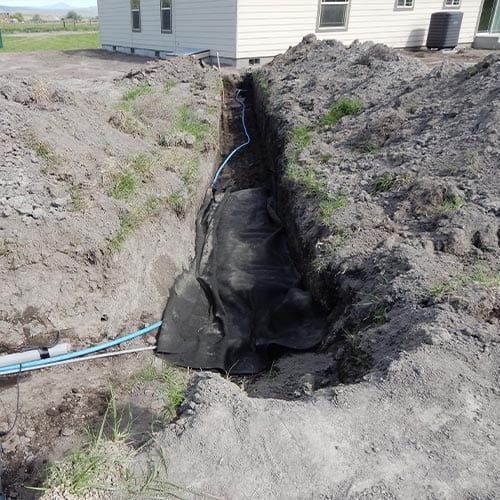Simple & Straightforward Change the Way You Think About Manufactured Homes
Manufactured home living has changed tremendously in the past couple of decades. What was once an impossibility is now routine for companies like ours that specialize in modifying and renovating these homes.
Here, we've consolidated some of the most frequently asked questions we receive from our customers. If you don't see your question listed here, please don't hesitate to get in touch with us!
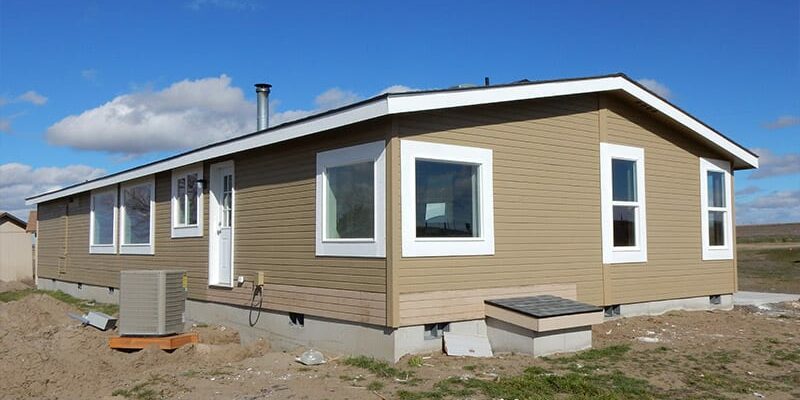
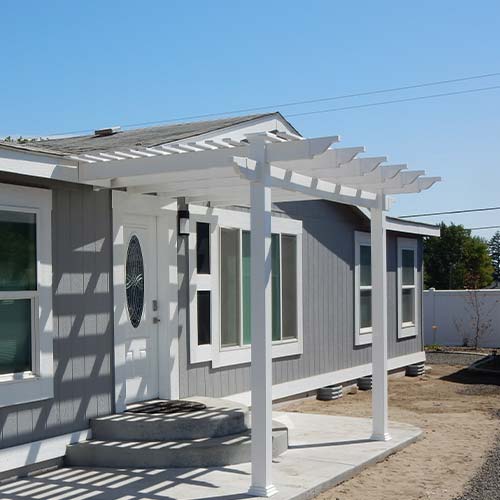
Generally speaking, we encourage homeowners to have their mobile and manufactured homes re-leveled or at least inspected once per year. Ultimately, there are many factors that contribute to a home becoming unlevel, so no two homes will need re-leveling on the same consistent schedule.
We offer free inspections and with a short review of your home can tell you whether your home needs to be re-leveled.
The cost of leveling a manufactured home depends largely on its size, the type of foundation, and the age of the home. When you contact us about mobile home re-leveling, we'll ask you some questions about your home and give you a ballpark price.
While we love to hear that homeowners want to take a more active role in maintaining their property, home re-leveling is one of those projects that really requires a professional. Experienced home re-leveling companies like ours have professional-grade tools like hydraulic jacks and water levels that are essential to properly leveling a home. More importantly, however, is the fact that home leveling can be extremely dangerous if not done correctly.
We offer competitive pricing for home re-leveling, so please consider calling us before attempting a DIY home re-leveling.
Mobile home tie-downs are support structures that connect to the I-beams of your mobile or manufactured home. These supports help to anchor your home to the ground in the event of a storm.
The state of Washington requires that all mobile and manufactured homes be tied down or anchored in some way. But state and local regulations are not the only entities concerned with the security of your home—many lenders will require the home to have tie-downs before they give loans for the purchase or renovation of a manufactured home. If you were to try to sell a manufactured home that does not have tie-downs, it's likely that the buyer would not be able to secure financing.
Setting your manufactured home on a concrete base is one of the best ways to help it maintain its value. However, many people mistakenly think that a concrete slab will prevent the need for tie-downs. In fact, there is a special concrete anchor that can be placed that will further secure the home. Ideally, this anchor is placed during the installation of the slab, but it can be installed afterward by a professional.
The quickest and cheapest foundation option for your home is the piered foundation system, which involves placing heavy anchors into the ground and attaching them securely to the beams beneath your home.
While a pier foundation system is a great option, it does come with some drawbacks. Homes placed on piered foundations may need re-leveling more often than homes on slabs or other types of foundations.
Another cost effective option is a concrete slab foundation, which is also inexpensive and will provide great support for your home's entire base.
If you're on the fence about what type of foundation to choose, get in touch with us for more information.
In a word, yes! Many people contact us wanting a new foundation for their existing home. Of course, the job is not finished when the foundation has been poured! We take care of all the logistics of moving the home onto the new foundation and securing it.
Mobile and manufactured homes can absolutely have basements! From crawl spaces for extra storage to beautiful walk-out daylight basements, our team is able to add valuable square footage to your home.
In addition to being highly functional, our basements offer important structural supports that are better for the wear and tear on your home. What is more, adding a basement to your home makes it more likely for you to secure financing. It's a win-win-win!
While most repairs and maintenance do not require permits, a renovation like adding on to a home is a major undertaking and generally does require the builder to obtain permits from local municipalities.
The good news is that we take care of all of that legwork for you. We've been in this business for many years and know exactly what permits are needed for the scope of work.
Securing financing for work on a manufactured home can be a tricky process. The lenders want to make sure the investment is a good one, and that the addition will actually add value to the property.
There are a few things you can do to increase the chances that you'll get financing for your renovation:
- Work with a licensed and certified manufactured home installer. (That's us!)
- Have the installer provide detailed plans and specifications to your lender. (We do that!)
- Place your home on a permanent concrete foundation. (We can help.)
In the business of building additions for manufactured homes, "building out" is far more common than "building up." This means that it's structurally a better idea to expand the total surface area your home covers rather than adding on another story. That being said, there are so many additions and modifications you can make to a mobile home, from porches and decks to more rooms and attached garages—the only real limitations are the age of your home, the land it sits on, and your budget.
The best way to find out what's possible when it comes to adding on to your manufactured home is to sit down with our experts for a free, no obligation consultation.
Removing interior walls is often the key to achieving the open concept layout that so many people are looking for nowadays. Like with any structure, it's only advisable to remove interior walls if the wall is not load bearing. If the wall does bear some or all of the weight of the structure, talk to your contractor about alternatives.
There are a few factors that determine whether remodeling your home will be worth it, financially speaking.
The age of the home is the most important factor. The older the home is, the less likely a remodel is to add value to it. This is largely due to the fact that some older homes were not subject to HUD regulations. Today, manufactured homes are made with higher quality materials and meet HUD standards to ensure value and safety—these quality standards also keep the home from depreciating as quickly as older mobile homes.
If you have a newer manufactured home, cosmetic upgrades like new flooring, cabinets, counter tops, and appliances can go a long way in increasing the resale value and making the home feel more comfortable.
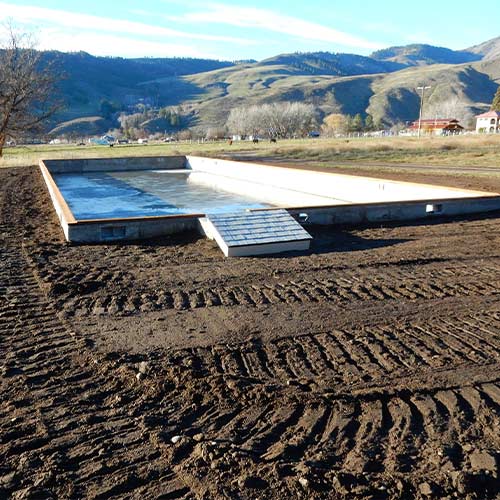
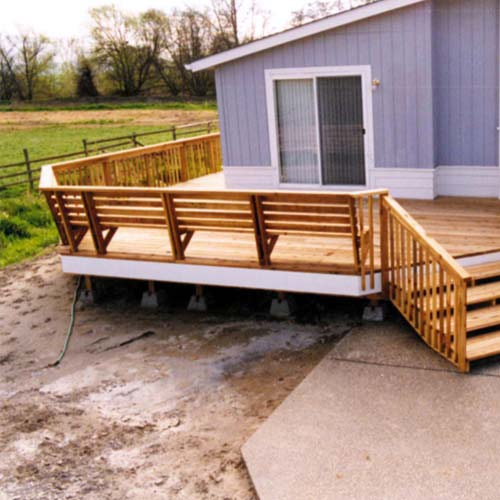
It's a familiar trope from home renovation shows: A family begins a major renovation on their home, only to find asbestos in the insulation or wiring that is a fire hazard. Unfortunately, it's a trope that is often true in the real world, too.
Manufactured home renovations are just as likely to involve hiccups along the way. Fortunately, we've been in the mobile home remodeling industry for many years and have encountered nearly every problem it is possible to have. In addition to doing cosmetic remodeling, we also do plumbing, electrical, and repairs of all sorts, so we are more than capable of handling any problems that may arise during your project.
There are many factors to take into consideration before moving a manufactured home. The number one factor that impacts a home's mobility is its age. Due to increasing quality and safety regulations established by the Department of Housing and Urban Development (HUD), manufactured homes are built better than ever these days. But older homes may not be structurally sound enough to move.
If you're unsure whether your home can or should be moved, contact us and we'll be happy to give you our advice at no charge.
For the vast majority of moves, the furniture does not need to be removed. However, it does need to be secured, and you should remove as many personal effects as possible to prevent damage and decrease the overall load.
The costs for moving a manufactured home vary greatly depending on the size and weight of the home. If you are considering moving your home, contact us and we'll be happy to give you an estimate.
Manufactured homes that sit on pier foundations tend to have more of their plumbing exposed to the elements. This means that homeowners should take certain steps to ensure that their pipes do not freeze when temperatures drop. These preventative measures may include purchasing insulation, repairing or replacing the skirting beneath your home, and leaving your faucets on to drip.
Manufactured homes that sit on permanent foundations tend to have this problem less. Learn more about concrete foundations for mobile homes.
It's generally a good idea to have your home's plumbing inspected at least once every year to detect any potential problems before they become catastrophic.
All manufactured homes made today have vented plumbing, shut-offs, and clean-outs to help deal with plumbing issues. The location of these safeguards may vary from home to home, so it's always a good idea to familiarize yourself with your plumbing setup before you experience a problem.


